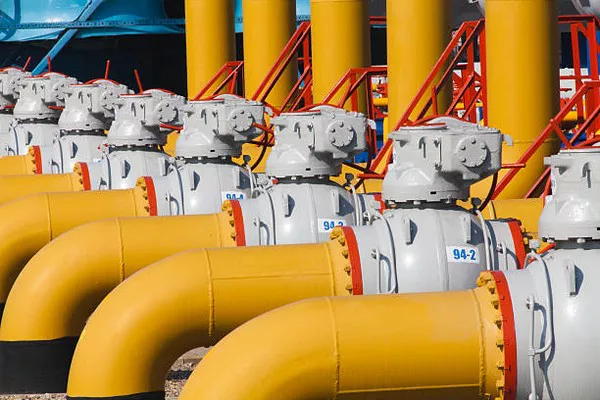In various industrial, commercial, and even household applications, the terms “compressor” and “pump” are often used interchangeably, leading to confusion about their true functionalities. While both devices are integral components in fluid mechanics and thermodynamics, they serve distinct purposes and operate on different principles. This article aims to elucidate the disparities between compressors and pumps, shedding light on their unique functionalities, applications, and underlying mechanisms.
Definition and Functionality:
A compressor and a pump are both mechanical devices designed to move fluid substances, but they accomplish this task through divergent methods and for disparate purposes.
Compressor: A compressor is a mechanical device that is primarily utilized to increase the pressure and reduce the volume of a gas or vapor. It works by drawing in a gas, typically air, and compressing it to a higher pressure, resulting in a decrease in volume. Compressors are commonly employed in refrigeration, air conditioning, pneumatic tools, and industrial processes where pressurized air or gas is required for various operations.
Pump: Contrarily, a pump is a mechanical device employed to transfer fluids, typically liquids, from one location to another. Pumps operate by creating a flow and generating kinetic energy to move the fluid through a system. They are utilized extensively in industries such as agriculture, wastewater management, oil and gas, and water treatment, where the transfer of liquids is essential for processes ranging from irrigation to chemical processing.
Operational Principles:
Understanding the operational principles is crucial to discerning the disparities between compressors and pumps.
Compressor: Compressors operate based on the principles of thermodynamics, specifically the laws governing the behavior of gases. They utilize mechanical energy to increase the kinetic energy of gas molecules, thereby raising their temperature and pressure. Compressors are available in various types, including positive displacement compressors (such as reciprocating and rotary compressors) and dynamic compressors (such as centrifugal and axial compressors), each with its unique mechanisms suited for different applications.
Pump: Pumps, on the other hand, operate on the principles of fluid dynamics. They utilize mechanical energy to impart velocity to the fluid, increasing its kinetic energy and facilitating its movement through pipes or channels. Pumps come in diverse forms, including centrifugal pumps, positive displacement pumps (such as piston pumps and diaphragm pumps), and axial flow pumps, each tailored to specific flow rate requirements and viscosity characteristics of the fluid being handled.
Distinguishing Features:
While compressors and pumps share the common objective of moving fluids, several distinguishing features set them apart:
Fluid State: Compressors are primarily used for compressible fluids, such as gases and vapors, whereas pumps are employed for incompressible fluids, typically liquids. This fundamental distinction stems from the operational principles of each device, with compressors focusing on altering the pressure and volume of gases, while pumps concentrate on transferring liquids.
Pressure Ratios: Compressors are designed to achieve significantly higher pressure ratios compared to pumps. They can elevate the pressure of gases by several orders of magnitude, enabling applications such as air compression for industrial tools or refrigerant compression in cooling systems. In contrast, pumps are optimized for moderate pressure increases, suitable for tasks like water circulation or chemical transfer.
Volume Variation: Compressors induce a reduction in volume accompanied by an increase in pressure, resulting in a denser gas or vapor. In contrast, pumps maintain the volume of the liquid being transferred while increasing its pressure, thereby ensuring a consistent fluid density throughout the process.
Applications:
The divergence in functionality and operational principles renders compressors and pumps suitable for distinct applications across various industries:
Compressor Applications:
Refrigeration and air conditioning systems: Compressors are integral components in cooling systems, where they compress refrigerants to facilitate heat exchange.
Pneumatic tools and machinery: Compressed air is utilized to power pneumatic devices such as drills, impact wrenches, and nail guns in construction and manufacturing operations.
Gas processing and transportation: Compressors play a vital role in the compression and transportation of natural gas through pipelines, ensuring efficient distribution to end-users.
Pump Applications:
Water management and distribution: Pumps are employed in water supply systems, irrigation networks, and wastewater treatment plants to transport water for domestic, agricultural, and industrial purposes.
Oil and gas extraction: Pumps facilitate the extraction and transportation of crude oil and natural gas from wells to processing facilities and distribution networks.
Chemical processing: Pumps are utilized in chemical plants to transfer various liquids, including solvents, acids, and corrosive solutions, during production processes.
See also How Much Does it Cost to Replace a Compressor in a Refrigerator?
Conclusion:
In summary, while compressors and pumps are both indispensable devices for fluid transfer and manipulation, they serve distinct functions and operate on different principles. Compressors are employed for compressible fluids such as gases and vapors, focusing on increasing pressure and reducing volume, whereas pumps are utilized for incompressible liquids, concentrating on fluid movement and pressure elevation. Understanding the disparities between compressors and pumps is essential for selecting the appropriate equipment for specific applications, ensuring optimal performance and efficiency across various industrial and commercial sectors.

